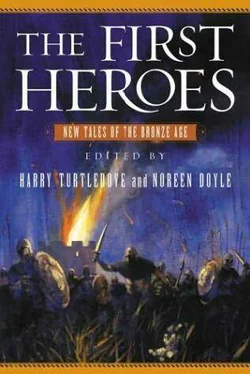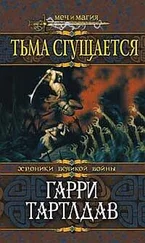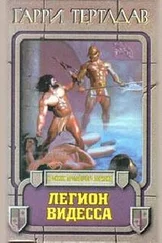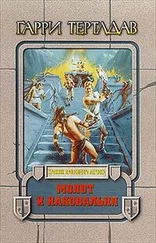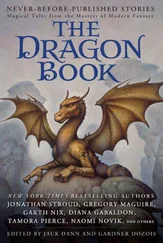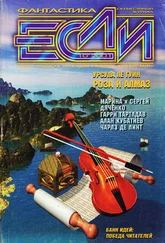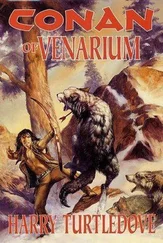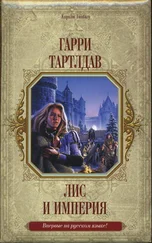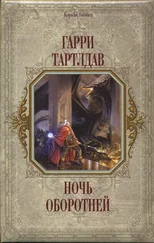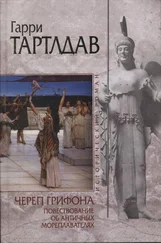Гарри Тертлдав - The First Heroes
Здесь есть возможность читать онлайн «Гарри Тертлдав - The First Heroes» весь текст электронной книги совершенно бесплатно (целиком полную версию без сокращений). В некоторых случаях можно слушать аудио, скачать через торрент в формате fb2 и присутствует краткое содержание. Жанр: Фантастика и фэнтези, на английском языке. Описание произведения, (предисловие) а так же отзывы посетителей доступны на портале библиотеки ЛибКат.
- Название:The First Heroes
- Автор:
- Жанр:
- Год:неизвестен
- ISBN:нет данных
- Рейтинг книги:3 / 5. Голосов: 1
-
Избранное:Добавить в избранное
- Отзывы:
-
Ваша оценка:
- 60
- 1
- 2
- 3
- 4
- 5
The First Heroes: краткое содержание, описание и аннотация
Предлагаем к чтению аннотацию, описание, краткое содержание или предисловие (зависит от того, что написал сам автор книги «The First Heroes»). Если вы не нашли необходимую информацию о книге — напишите в комментариях, мы постараемся отыскать её.
The First Heroes — читать онлайн бесплатно полную книгу (весь текст) целиком
Ниже представлен текст книги, разбитый по страницам. Система сохранения места последней прочитанной страницы, позволяет с удобством читать онлайн бесплатно книгу «The First Heroes», без необходимости каждый раз заново искать на чём Вы остановились. Поставьте закладку, и сможете в любой момент перейти на страницу, на которой закончили чтение.
Интервал:
Закладка:
Today somthing is going on but I don't know what. Marry came in and said somthing is getting wors. Somthing aubt a plane. But what that's the onley quchin I have. I'm -probley going to ask her to tell me the ansor becas quechins are ejacashnal.
Trent shook his head. "You couldn't make up something like that," he said. Leslie looked at him with annoyed bemusement. Who said anything about making things up?
Their first trip to the City was a rainy Sunday excursion to the Brooklyn Museum of Art, where an exhibit on Japanese anime was about to close. They were quiet as they crossed the bridge to Queens, which afforded them a good look at the south Manhattan skyline. Trent perked up as they entered the lobby, however, and led Megan off to the fifth floor while Leslie checked the map for the Assyrian collection.
Most of the Mesopotamian exhibits were Babylonian, but Leslie found one extremely strange artifact from the era of Ziggurat: a teapot-sized terra-cotta jug bearing a chicken's head and four clay wheels. She stared at the thing, which looked more Dada than Sumer-ian, then read how such vessel carts could be dated to the mid-third millennium, but that scholars were divided as to whether they had been built as toys or for temple rituals. Leslie thought that the saucer-sized wheels were too crude for religious purposes, and noticed something that the description hadn't mentioned, a half-ring emerging from the front of the vessel, from which a rope could be tied to pull the device. Of course it was a toy, though she could not imagine why wheels had been put on a pouring jug (it had two openings, one for filling from the top and a spout in front) rather than a chariot.
More compelling was a copper statuette on the opposite wall, of a man wearing a helmet with long curving horns and strange boots that curled up extravagantly at the toes. His pointed beard and wide staring eyes reminded Leslie of a medieval devil, a conceit that would give pleasure to a fantasy writer or a fundamentalist. The text noted that the horns resembled those of a species of ram found in the mountain regions, whose present-day inhabitants wore pointed slippers. So perhaps the figure had been made there: no one knew.
". . . It wasn't the actual film at all, just the video projected onto a big screen, so we saw the clamshell version with its sides trimmed off." Trent was talking about a kid's movie that had been shown as part of an exhibit. It was raining on the ride back, and Leslie was concentrating on the road.
"So what were these creatures like?" she asked dutifully. She was trying to get onto the Whitestone Bridge, but the lane for the turnoff was stalled as a stream of cars, most bearing American flags, passed on the left to cut in just before the exit.
"They were mammals, I guess: furry, with serene expressions. You couldn't tell from the dubbing whether totoro was a made-up word or the Japanese term for a forest spirit." "Like Huwawa?" Trent was always gratified when she remembered an earlier subject of interest to him. "Hey, maybe. Huwawa fought back, but then the totoro were never attacked. They did have enormous teeth."
Leslie wanted to ponder the nature of wheeled vessels, but consented to discuss Gilgamesh and Enkidu's journey to the Cedar Forest to slay its guardian. The strange passage held more interest than Zig-gurat's political macaronics, and spoke (in some way) of the distances Sumerians had to travel to get wood for their roof beams and chariots.
"Huwawa was supposed to be evil," Trent mused. "An odd quality for a forest guardian."
"It was Gilgamesh who called him that," Leslie pointed out. "It seemed pretty plain that he wanted to kill him for the glory. You will recall that Enkidu, closer to nature, hated the whole idea."
"A totoro wouldn't kill anyone for the glory," Megan observed from the backseat. "They don't need glory."
Her parents exchanged glances. "Good girl," said Trent. "More people should think that way."
After dinner Trent showed Megan a game board on his computer. "Archeologists called it 'the Royal Game of Ur,' because the first boards were found in the Ur royal cemetery. But other versions were found elsewhere, even drawn on paving-stones, so it wasn't just for kings."
Megan studied the irregularly shaped board, which comprised a rectangle made of twelve squares and another made of six, joined by a bridge two squares long. Each square was brilliantly colored with one of several complex designs. "How do you play?" she asked.
"Nobody really knows. Some rules were discovered for a much later version, and it seems that each player threw dice to move tokens around the board. The two players each move in opposite directions, and can land on each other's tokens and bump them off, especially along the narrow stretch here."
Megan reached out and traced her finger down the board's side. "Can we play it online?"
Trent shook his head. "Sorry, this is just an image of the original board. It wouldn't surprise me if there was a website somewhere to play it, though."
"Maybe the designers should add that feature to Ziggurat," he said later to Leslie.
"They know their audience better than you do," she replied. "You know what they would say? 'There's no place here for a game.'" Trent laughed. "True enough. I like the narrow defile, though. It compels the player to move his tokens along the equivalent of a mountain trail." "No mountain trails in Sumer. Were you hoping to give players a pleasant suggestion of the Khyber Pass?"
That night Leslie opened a file on her laptop and began to organize her notes on Sumer into something that could provide the outline of a novel. War had to be the theme of at least one book, Trent had said, and present in the background for the other two. Leslie decided to think about agriculture and water rights, a likelier cause for conflict than the poems suggest. Even a prosperous landowner would have no reason to read, but Leslie suspected that a middle-class audience would have problems with an illiterate protagonist, so she invented a younger son who was intended to become a scribe. Worldly doings would dominate the action, but it was the kid sister who would prove the novel's secret protagonist, and not merely for Leslie. Women always constitute more of these books' audience than the men realize, Trent had told her. You craft the book to please them, like the baby food that is flavored for the mother's palate.
She sketched out some paragraphs about a girl who helped her younger brother prepare practice tablets for school, while the older brother learned the family business with their father. Nobody knew how the clay tablets were made, though she could make some obvious guesses. Nobody knew the location of Agade, Sargon's magnificent capital. Leslie was tempted to set the novel there, though of course she realized she should use sites that readers would find in Ziggurat.
In fact. . . Leslie padded into the office, where the flexing trape-zoids of Trent's screensaver moved silently across their bit of darkness. Trent used her own machine's better speakers to play music, so had left the Ziggurat CD in his drive, its icon present (she saw after tapping the side of the mouse) on the task bar at the bottom of his screen. She twirled the volume knob, then brought the cursor gliding down to click on the tiny pyramid. As the game instantly resumed, she brought the volume up to the lowest audible level, and the clashing sounds of battle faintly reached her.
Leslie clicked rapidly backward, undoing whatever war Trent had gotten himself involved in, then paused in the silence to examine the lists of artifact images. Might as well use implements actually pictured in the game, if you're going to write a tie-in. But the subdirectories showed few agricultural or domestic tools (the designers favoring scenes of splendor or warfare), and she found herself studying the gorgeous works of art, museum photographs—had the producer cleared the rights for these?—of enormous-eyed statuettes; gold jewelry of exquisite workmanship; goddesses carved of alabaster and serpentine, the later ones of Attic accomplishment, the earlier ones deeply strange.
Читать дальшеИнтервал:
Закладка:
Похожие книги на «The First Heroes»
Представляем Вашему вниманию похожие книги на «The First Heroes» списком для выбора. Мы отобрали схожую по названию и смыслу литературу в надежде предоставить читателям больше вариантов отыскать новые, интересные, ещё непрочитанные произведения.
Обсуждение, отзывы о книге «The First Heroes» и просто собственные мнения читателей. Оставьте ваши комментарии, напишите, что Вы думаете о произведении, его смысле или главных героях. Укажите что конкретно понравилось, а что нет, и почему Вы так считаете.
